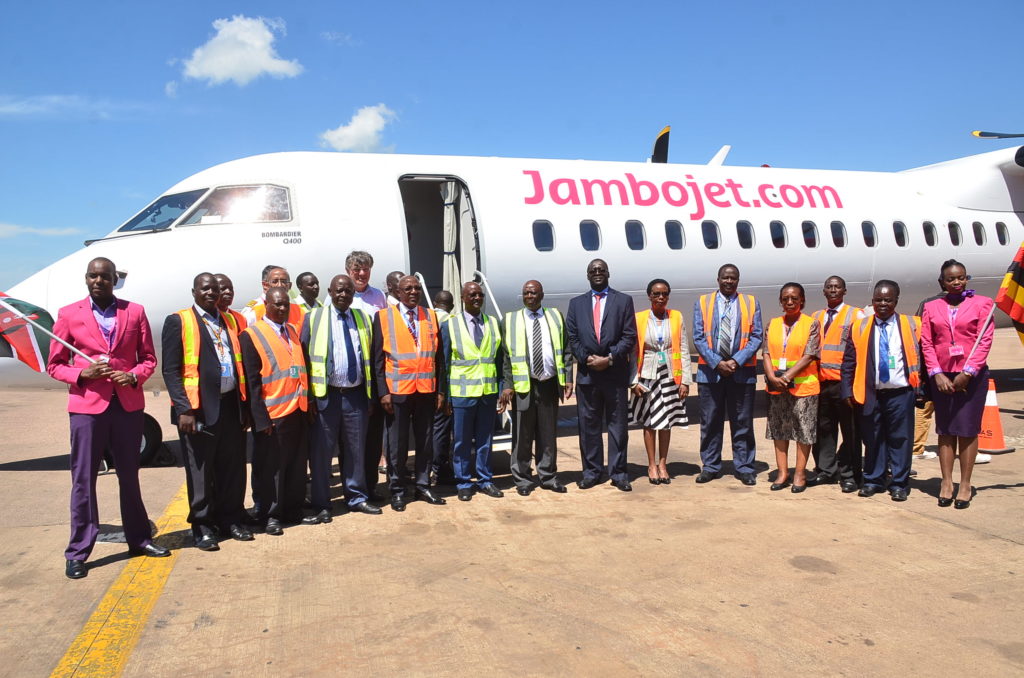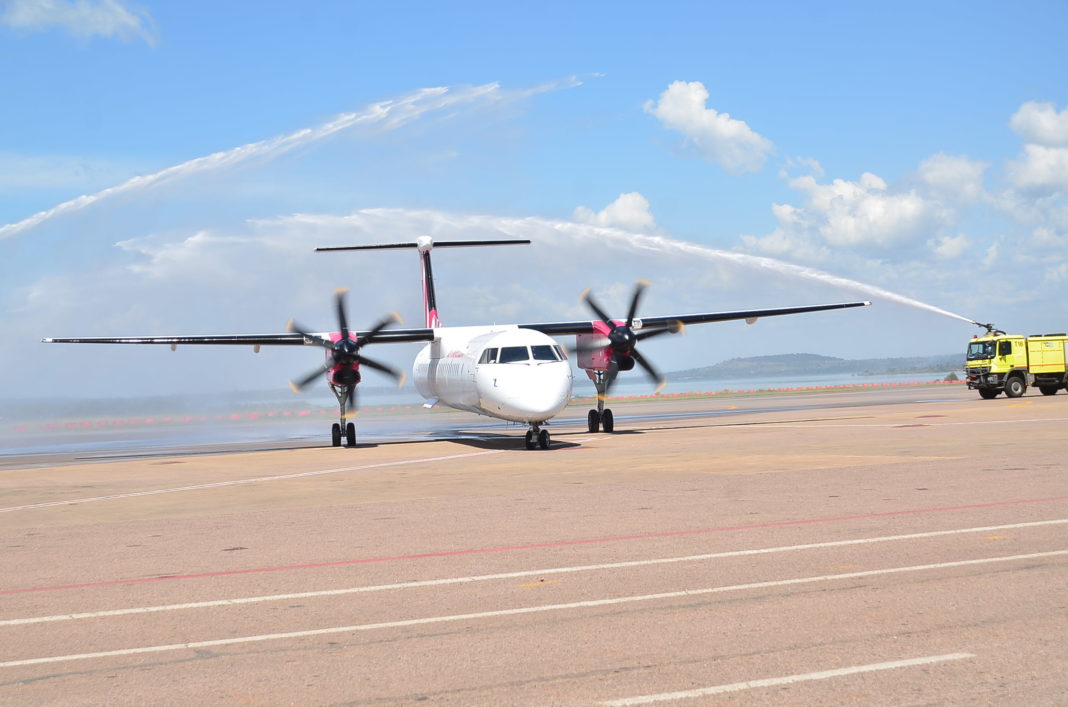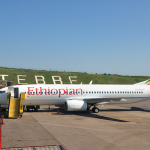Jambojet maiden flight to Uganda touched down at Entebbe Airport at exactly 10.30 am, ushering in renewed competition and a promise of lower air fares for frequent flyers in Uganda.
The maiden flight was met by Director of Transport from Ministry of Works and Transport Mr. Benon Kajuna, Uganda Civil Aviation Managing Director Dr. David Kakuba, and Jambojet CEO, Willem Hondius, amongst others.
With the entry, Jambojet will operate double daily flights with departures from Jomo Kenyatta International Airport (JKIA) at 09.10hrs and 17.30 hrs. The flight will depart Entebbe International Airport for Nairobi at 11.00 hrs and 19.20 hrs daily.
Speaking during the occasion, Jambojet CEO Willem Hondius said Jambojet introductory fare of US $116 approximately (Shs 400,000) is the lowest on the route and was intended to encourage more people to travel by air both in Uganda and the region.
“In East Africa alone, we have a market of over 100 million people and we have barely scratched the surface in air travel. We believe that Jambojet’s entry into Uganda will make air travel more affordable to majority of people who travel for business or leisure in the region and beyond.”
He noted that there is especially a huge opportunity for the tourism sector to develop products that are unique to Uganda and can be shared through a regional circuit. With Jambojet entry into the market, it is expected to eat into Kenya Airways that had monopolized the Nairobi-Entebbe route and made it the most expensive short route in the world.

“In particular we expect the tourism industry to reap maximum benefit from facilitation of an EA Circuit which would give tourists an opportunity to visit scenic attractions in Uganda such as The Source of The Nile., Murchison Fall, Queen Elizabeth National Park and the Rare Mountain Gorillas in Bwindi National Reserve,” he said.
The Director of Transport Mr. Benon Kajuna who represented the State Minister for Works and Transport Aggrey Bagiire noted that the growth of the air travel sector was important for the entire economy since it created opportunities for investment, capacity building and employment including creating linkages for better intra-regional trade.
“We need to build capacity to allow our local businesses to have greater access to foreign markets. Air transport and connectivity supports exports and simultaneously increases competition and choice in the home market from foreign-based producers. This in turn encourages firms to specialize in areas where they possess a comparative advantage, allowing for opportunities to exploit economies of scale, which lowers the cost of production and ultimately benefits domestic consumers,” he noted.








